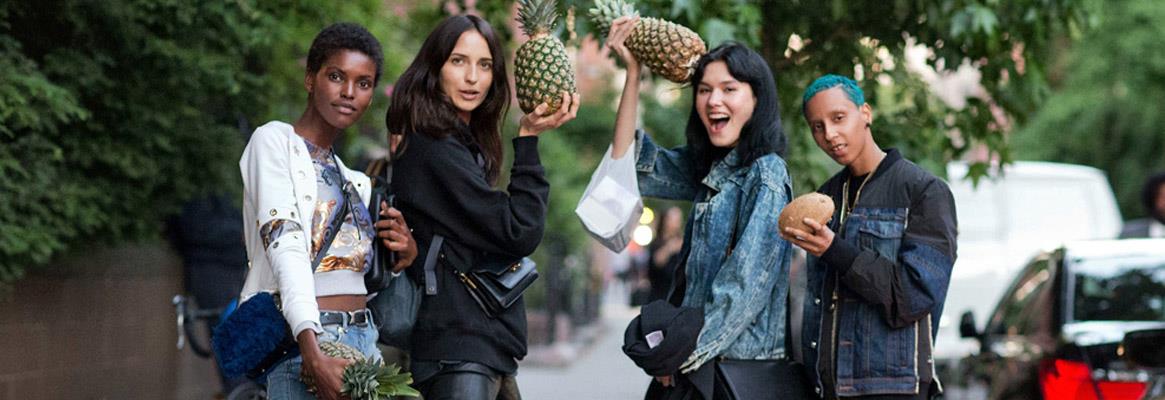Sustainable Fashion Fad – I remember the days when sustainability was regarded as a trifle. The more the fur and the rarest the animal skins the more luxurious the collections were perceived. But times have changed, and the younger generations of fashion lovers show a more conscious approach to what fashion means to them and what they value, by carefully selecting what they wear.
 As their new clients demand transparency, fashion labels are actively engaging in sustainable manufacturing operations and eco-friendly communication strategies, aimed to demonstrate their proactive commitment.
As their new clients demand transparency, fashion labels are actively engaging in sustainable manufacturing operations and eco-friendly communication strategies, aimed to demonstrate their proactive commitment.
In fact, the trend was long forecasted by the luxury expert and author of the reference book ‘Luxury and sustainable development: the new alliance’, Ccile Lochard statement: “The fashion industry cannot continue the depletion of rare materials any longer without worrying about the collapse of biodiversity, animal suffering, soon to be followed by consumers’ backlash.”
 All fashion buyers, in particular, millennials and Gen Z, are choosing with preponderance labels committed to noble causes as highlighted in the last year ‘Millennials Pulse’ report by Shelton Group which finds out that 90 per cent of millennials shop from labels that are actively dealing with environmental problems.
All fashion buyers, in particular, millennials and Gen Z, are choosing with preponderance labels committed to noble causes as highlighted in the last year ‘Millennials Pulse’ report by Shelton Group which finds out that 90 per cent of millennials shop from labels that are actively dealing with environmental problems.
Also known as ‘conscious citizens’, the millennial generation expects brands to convey true transparency in their messages as to them, sustainability has become a key driver in their choice for beauty products and fashion.
Luxury brands are also embarking on fur-free alliances following on the steps of Kering Group; Stella McCartney and Gucci, Versace, Michael Kors. Or, joining forces in sustainable endeavours as it was the case of Denma Gvesalia, Balenciaga’s designer, and his dedicated sweater designed to support the World Food Program.
Similarly, Burberry, Nike, H&M, and Gap have joined the sustainable movement last year via the Ellen McArthur Foundation, a philanthropic foundation that aims to shift fashion businesses towards circular manufacturing practices.
However, while the fashion labels actively supporting sustainable development show stronger engagement, with 66 per cent of the brands being part of the top 5 sustainable initiatives in 2017, there is a still 10 per cent of fashion labels still not involved in sustainability at all – according to the Pulse Fashion industry report for 2018.
 Moreover, according to a shopping survey conducted by LIM College, sustainable motivation as the key driver in the product value perception is outweighed by price and product uniqueness.
Moreover, according to a shopping survey conducted by LIM College, sustainable motivation as the key driver in the product value perception is outweighed by price and product uniqueness.
The study also states that the purchase of sustainable fashion garments remains low in relation to consumers’ expressed desire to own them, as there are not sufficient vegan or eco-friendly labels to meet consumers’ demand.
And while most fashion brands have noticed the change in consumers’ expressed values, their actions continue to show confusion. Let’s see the case with Kenzo teaming up with the ‘Blue Marine’ foundation for the ‘No Fish – No Nothing’ collection.
 OR, Salvatore Ferragamo and its ‘Rainbow future’ platform. See Burberry’s partnership with the Rainforest Alliance, or Vivienne Westwood periodic launches of sustainable fashion capsules in what it looks more like testing the market, rather than a definitive change of direction.
OR, Salvatore Ferragamo and its ‘Rainbow future’ platform. See Burberry’s partnership with the Rainforest Alliance, or Vivienne Westwood periodic launches of sustainable fashion capsules in what it looks more like testing the market, rather than a definitive change of direction.
The takeaway here is that while fashion labels ‘enter’ the sustainability trend through ‘green partnerships’, the launch of either limited edition for vegan fashion buyers, or aggressively showcasing their pro-sustainability actions on media, consumers need products.
Widely available products, made from innovative materials backed up by trustful certifications, products that fashion lovers can buy to showcase who they think they are, their values, and their tribes.
This article has not been edited by Fibre2Fashion staff and is re-published with permission from thevou.com








Comments